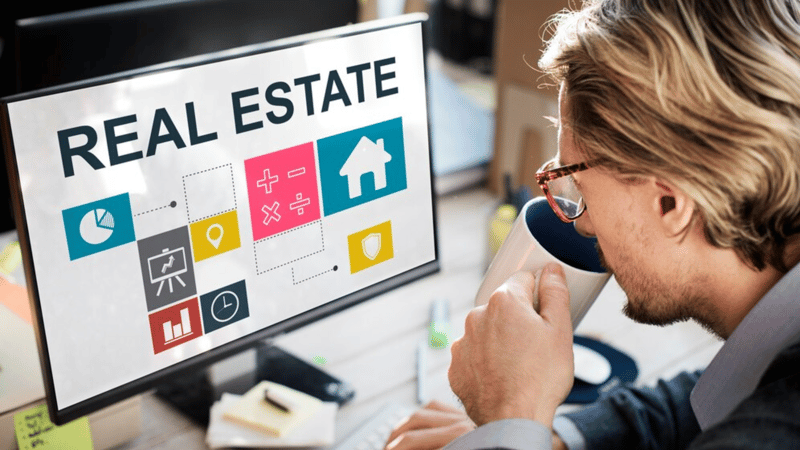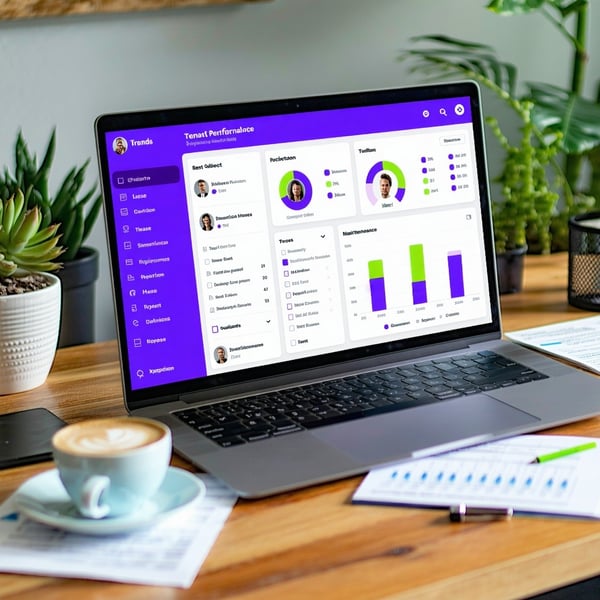Managing multiple properties is no small task. Property managers juggle tenant inquiries, lease agreements, rent collection, maintenance requests, and financial records—all while ensuring properties remain profitable and well-maintained. Keeping track of everything manually can lead to inefficiencies, missed deadlines, and frustrated tenants.
This is where a Property Management CRM comes in. By automating and streamlining day-to-day operations, a CRM improves efficiency, enhances tenant relationships, and helps property managers scale their portfolios with ease. Whether you manage a few rental units or oversee a large real estate business, adopting the right CRM is essential for maximizing productivity and profitability.
What is a Property Management CRM?
A Property Management CRM (Customer Relationship Management) is a specialized software solution designed to help property managers centralize and automate critical property management tasks. Unlike traditional Property Management Software, which primarily focuses on lease and financial tracking, a CRM prioritizes tenant relationships and operational efficiency.
With a Property Management CRM, managers can:
- Store and manage property-related data in one place
- Automate tenant communication and lease tracking
- Streamline rent collection and financial reporting
- Track maintenance requests and property inspections
- Access real-time analytics for better decision-making
By integrating Real Estate Management Tools with automation, a CRM helps property managers stay organized, reduce manual work, and ensure tenant satisfaction.

Managing Multiple Properties? Here’s How a CRM Makes It Simple!
1. Centralized Property Data and Tenant Information
Managing multiple properties involves handling large amounts of data, including lease agreements, rental payment records, maintenance logs, and tenant details. Without a centralized system, property managers often struggle with misplaced documents, inconsistent records, and the inefficiencies of manual tracking. A Property Management CRM provides a single, secure platform where all property and tenant information is stored and easily accessible. This allows managers to quickly retrieve lease terms, payment histories, and communication records in one place, improving organization and ensuring that important details are not overlooked. With all data structured and updated in real-time, property managers can make more informed decisions and provide better service to tenants.
2. Streamlined Tenant Communication
Clear and efficient communication is essential for maintaining positive landlord-tenant relationships. Delayed responses to tenant inquiries, unclear lease terms, or missed maintenance requests can result in tenant dissatisfaction and higher turnover rates. A Property Management CRM automates and streamlines communication by sending automated email and SMS notifications for rent reminders, lease renewals, and policy updates. Tenants can submit inquiries and service requests online, and all interactions are tracked to ensure that no message is missed. Additionally, automated follow-ups and alerts help property managers stay on top of unresolved issues. By improving response times and ensuring organized communication, property managers can enhance tenant satisfaction and retention.
3. Efficient Lease and Rent Management
Managing lease agreements, renewal dates, and rent payments across multiple properties can be complex and time-consuming. Missing deadlines or failing to collect rent on time can impact cash flow and create unnecessary administrative challenges. A Property Management CRM simplifies this process by storing lease agreements and setting automated alerts for upcoming expirations. It also sends rent reminders to tenants, reducing the risk of late payments. Digital lease signing further streamlines the leasing process, allowing for quick and hassle-free document completion. Additionally, integration with payment gateways enables seamless rent collection, reducing manual effort and ensuring a steady cash flow. By automating these tasks, property managers can enhance efficiency and financial stability.
4. Maintenance and Repairs Tracking
Property maintenance plays a critical role in tenant satisfaction and preserving the value of rental assets. Without an efficient system, maintenance requests can pile up, leading to delays in repairs and frustration among tenants. A Property Management CRM helps streamline maintenance by allowing tenants to submit repair requests online, which are then automatically assigned to maintenance staff or contractors. The system tracks the progress of maintenance jobs in real time and maintains a history of past repairs for future reference. With proactive maintenance tracking, property managers can ensure timely repairs, prevent property damage, and keep tenants satisfied, ultimately leading to longer lease terms and fewer vacancies.
5. Advanced Reporting and Analytics
Effective property management requires data-driven decision-making. Manually tracking key metrics such as occupancy rates, rental income, maintenance expenses, and tenant feedback can be inefficient and prone to errors. A Property Management CRM offers advanced reporting and analytics, providing property managers with real-time insights into their operations. It enables them to monitor rent collection trends, identify payment issues, track occupancy rates, and forecast vacancies. Additionally, the system helps analyze maintenance costs and budget for future expenses while generating financial reports for tax and accounting purposes. By leveraging these insights, property managers can optimize rental pricing, reduce vacancies, and improve overall profitability, ensuring long-term success.
Key Features of a Property Management CRM
A Property Management CRM comes with a range of features designed to simplify property management tasks. Here are some of the most essential ones:
1. Automated Workflows - Automating repetitive tasks such as rent reminders, lease renewals, and maintenance requests saves time and reduces the risk of human errors. Property managers can set up custom workflows to ensure that important tasks are completed on time.
2. Multi-Property Management - For those managing multiple properties, a CRM offers the ability to organize and categorize units, tenants, and financial records in a structured manner. This eliminates confusion and allows managers to scale their operations effectively.
3. Integration with Other Tools - Many CRMs integrate with Real Estate Management Tools, accounting software, and payment gateways, providing a seamless experience for property managers. This integration ensures that data flows smoothly across different platforms without manual intervention.
4. Document Management - A Property Management CRM allows managers to store and retrieve important documents such as lease agreements, maintenance records, and tenant communication logs in a secure, cloud-based system. This eliminates paperwork and makes document access easier and more efficient.
Why Property Managers Should Invest in a CRM
If you’re still managing your property portfolio manually or relying on outdated Property Management Software, now is the perfect time to switch to a Property Management CRM. A modern CRM brings better organization by reducing paperwork and consolidating all property-related data in one centralized platform, making it easier to access and manage information efficiently.
Beyond organization, a CRM significantly improves the tenant experience by streamlining communication, automating rent reminders, and ensuring quick resolution of tenant concerns. This leads to higher tenant satisfaction and retention, which is crucial for maintaining occupancy rates. Additionally, automating essential tasks such as lease tracking, rent collection, and maintenance requests boosts overall efficiency, allowing property managers to save time and focus on more strategic aspects of their business.
Investing in a Property Management CRM also contributes to increased profitability by helping optimize rental income and minimize operational costs. With data-driven insights and reporting, property managers can make informed decisions about pricing strategies, budgeting, and maintenance planning. Moreover, as your portfolio expands, a CRM provides the scalability needed to handle more properties effortlessly, ensuring smooth operations without adding unnecessary administrative burden. By adopting a Property Management CRM, property managers can streamline processes, enhance tenant relationships, and improve overall business performance.
Final Thoughts
A Property Management CRM is no longer a luxury—it’s a necessity for property managers looking to improve efficiency, optimize portfolio performance, and enhance tenant relationships. With built-in automation, communication tools, and powerful analytics, a CRM allows property managers to scale their business while maintaining high service standards.
If you're managing multiple properties, investing in the right Portfolio Management Solutions will help you stay ahead of the competition and streamline operations for long-term success.















